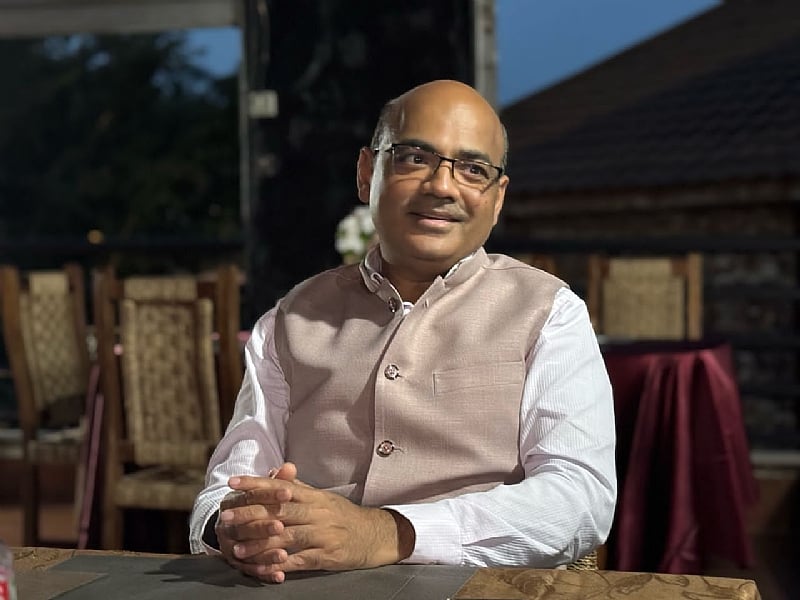India-Ghana Partnership to Advance Herbal and Ayurvedic Medicine
India and the University of Health and Allied Sciences (UHAS) in Ghana’s Volta Region are embarking on a significant collaboration to bolster research and development in herbal and Ayurvedic medicine. This partnership, formalized through a forthcoming memorandum of understanding (MOU), aims to leverage India’s extensive expertise and established institutional frameworks in Ayurveda, a traditional Indian system of medicine. Ayurveda utilizes herbal remedies and holistic practices, encompassing dietary and lifestyle adjustments, for both treatment and prevention of ailments. This approach resonates with Ghana’s existing interest in alternative medicine, creating a fertile ground for collaborative innovation.
The partnership’s core objective is to share India’s deep knowledge and institutional infrastructure in Ayurveda with UHAS, facilitating knowledge transfer and joint research initiatives. This collaborative framework will encompass various aspects of Ayurvedic practice, including herbal medicine formulation, therapeutic techniques, and holistic wellness approaches. The exchange of knowledge and expertise is expected to enhance UHAS’s capacity in herbal medicine research and development while also offering India the opportunity to learn from Ghana’s unique medicinal plant resources and traditional healing practices. The MOU will serve as the bedrock for a long-term, structured collaboration, setting the stage for advancements in herbal and Ayurvedic medicine within Ghana and potentially beyond.
Strengthening Bilateral Ties and Exploring New Avenues for Collaboration
This initiative forms part of a broader strengthening of ties between India and Ghana. High Commissioner Manish Gupta, during his visit to the Volta Region, highlighted existing Indian investments in key sectors such as rice cultivation, sugarcane production, and energy. He also underscored the potential for further collaboration in emerging sectors like wellness tourism and agri-processing, recognizing the Volta Region’s untapped potential for growth in these areas. This diversified approach to economic partnership aims to leverage the strengths of both nations, promoting sustainable development and mutual benefit.
Beyond economic partnerships, the collaboration extends to capacity building and human resource development. The Indian Technical and Economic Cooperation (ITEC) Program, a long-standing initiative, has already benefitted over 4,000 Ghanaians, with a significant number hailing from the Volta Region. This program exemplifies India’s commitment to fostering skill development and knowledge transfer, empowering Ghanaians with valuable expertise in various fields. The continued support through ITEC and similar programs underscores the importance placed on human capital development as a cornerstone of sustainable growth and progress.
Focus on Volta Region’s Potential and Fostering Local Engagement
High Commissioner Gupta’s visit to the Volta Region served to emphasize the region’s importance in the broader context of India-Ghana relations. Meeting with Regional Minister James Gunu and other key stakeholders, the High Commissioner expressed appreciation for the region’s natural beauty and the warmth of its people. He highlighted the Volta Region’s potential for growth in various sectors, particularly wellness tourism and agri-processing, recognizing the region’s unique resources and opportunities.
The High Commissioner’s engagement extended to the local business community, where he interacted with entrepreneurs and explored potential investment avenues in health, agriculture, and information technology. These discussions aimed to identify specific areas ripe for collaboration, fostering private sector partnerships and promoting mutually beneficial economic activities. By engaging directly with local businesses, the High Commissioner sought to gain a deeper understanding of the region’s economic landscape and identify opportunities for targeted investment and support.
Promoting Ayurveda and Addressing Healthcare Challenges:
The focus on Ayurveda reflects a growing global interest in traditional and complementary medicine systems. Ayurveda, with its holistic approach and emphasis on natural remedies, offers a potential complementary system to address healthcare challenges, especially in regions where access to conventional medicine may be limited. The partnership between India and UHAS aims to harness the potential of Ayurveda to contribute to healthcare innovation and improve access to healthcare services in the Volta Region.
By promoting research and development in Ayurveda, the collaboration seeks to explore the efficacy and safety of herbal remedies, develop standardized formulations, and integrate Ayurvedic principles into existing healthcare practices. This initiative aligns with the broader global movement towards integrative medicine, which recognizes the value of combining traditional and modern healthcare approaches to address complex health challenges.
Building Bridges and Strengthening Democratic Values:
The collaboration between India and Ghana extends beyond specific sectors, encompassing a shared commitment to democratic values and open communication. High Commissioner Gupta acknowledged the crucial role of the media in shaping democratic societies, recognizing the press as the "fourth pillar of democracy." He emphasized the importance of engaging with local media and fostering open dialogue to strengthen democratic institutions and promote informed public discourse. This commitment to media engagement reflects a shared belief in the importance of transparency and accountability in governance.
The partnership between India and UHAS represents a significant stride towards furthering research and development in herbal and Ayurvedic medicine. By sharing expertise, fostering innovation, and promoting capacity building, this collaboration aims to contribute to healthcare advancements, economic growth, and stronger bilateral ties between India and Ghana. The focus on the Volta Region highlights its potential as a hub for collaboration and development, while the emphasis on engaging with local stakeholders demonstrates a commitment to inclusive and sustainable partnerships. This collaborative endeavor holds the promise of benefiting both nations, advancing healthcare, and fostering deeper understanding between the two cultures.














